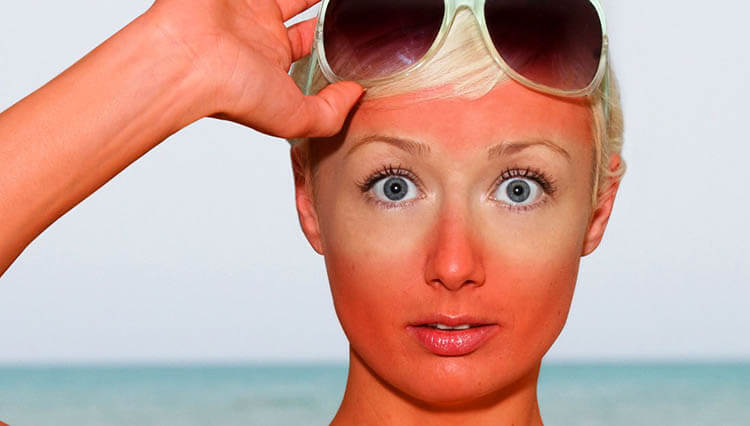It’s that time of year again… time to focus on summer skincare! Our Health and Wellness Center has some tips for you.
A few months back we sent out information about how to prevent harmful UV exposure, as well as how to prevent tick bites. To recognize the first official day of summer we thought we would review ways that will help you recover from various assaults on your skin that may occur while spending time outdoors. Of course you are always welcome to come in to the Health and Wellness Center to get the care you may need. We have certainly seen a number of folks already come through after encounters with black flies recently!
Sunburns
There are no ways to reverse the skin damage or hasten healing time of sunburns, but there are a handful of approaches that may make you more comfortable. For mild burns, cool compresses and aloe vera-based gels can provide some relief of pain and discomfort. If blisters present then be sure to gently clean with mild soap and water. Do not apply any medicated creams to sunburned areas, such as hydrocortisone or topical antihistamines, as this might cause additional skin irritation. Evaluation by a provider is warranted if there are blisters or when there are systemic symptoms, such as fever, headache, or signs of dehydration.
As mentioned earlier, there is no way to reverse the irreparable skin damage that results from UV rays, which leads to wrinkles and skin cancer, so prevention is crucial. Even if not basking in the sun, it is a good idea to wear a hat and lather broad spectrum sunscreen >30 SPF on skin-exposed areas wheneveroutdoors. Don’t forget the tips of the ears and to reapply every two hours.
Insect bites
Reactions to insect bites will vary depending on the type of insect biting and one’s own sensitivity to insect venom. Regardless, most bites will only cause a localized reaction around the affected area that will be self-limited. If you’ve been bitten by a tick be sure to use tweezers to grasp the tick as close to the skin as possible, then pull up gently but firmly. Do not twist it out. All types of insect bites should be cleaned with soap and water. Immediate medical attention is needed if you have any trouble breathing, a sense of swelling in your throat or dizziness after a bite.
The severity of insect bite reactions vary from small irritations to significant swelling and itching. Most people will find relief of itching, swelling, or pain after taking an antihistamine, such as Claritin, Zyrtec or their generic editions. Cool compresses and topical hydrocortisone 1% will also help to calm down the reaction. These measures may have to be employed for a few days as it could take up to a week for localized reactions to resolve.
Though most reactions are fairly benign, insects can spread infectious diseases so it is important to monitor for then see a medical provider if symptoms such as fever, acute onset of fatigue, swollen glands develop or if the bite mark appears to be becoming infected. If the bite came from a tick and a rash develops around the bite site over the few weeks afterwards then medical attention is recommended to evaluate further for Lyme and other tick-borne diseases.
As usual, prevention is key. DEET is the most common and one of the most effective agents against mosquitos, biting flies, chiggers, fleas and ticks. Some plant-derived repellents that have proven to effective against a wide array of insects include picaridin, PMD (active ingredient in lemon eucalyptus), and BioUD (derived from tomato plants).
If you have any questions about care of sunburns or insect bites please call or stop by the National Life Health and Wellness Center.
Telephone: (802) 229-7151
Schedule an appointment online: NationalLifeGroup.MyCenterVisit.com
Hours of operation:
M/W 7:30-4:00
T/Th 8:30-4:00
F 8:00-11:00

